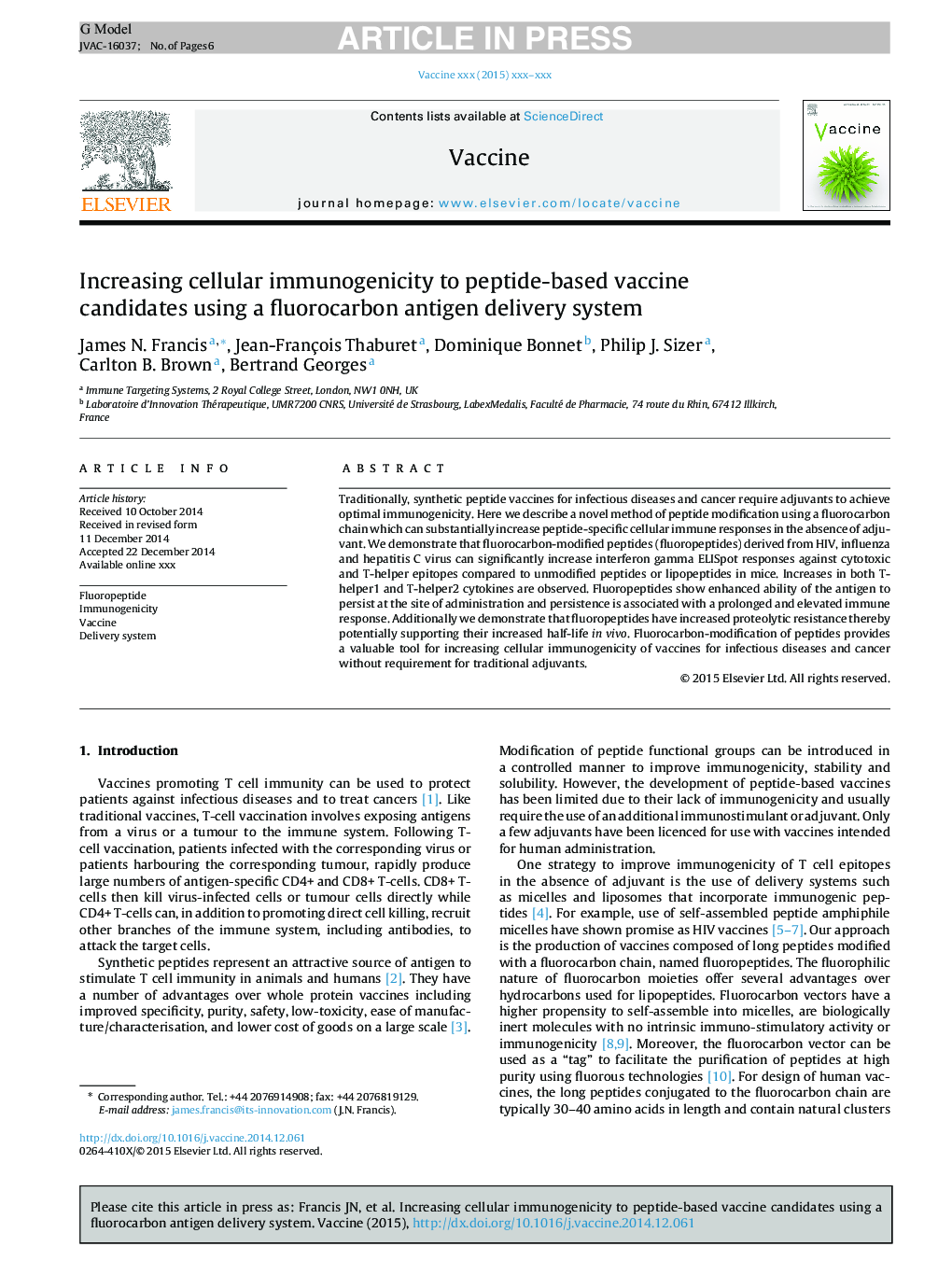| Article ID | Journal | Published Year | Pages | File Type |
|---|---|---|---|---|
| 10964065 | Vaccine | 2015 | 6 Pages |
Abstract
Traditionally, synthetic peptide vaccines for infectious diseases and cancer require adjuvants to achieve optimal immunogenicity. Here we describe a novel method of peptide modification using a fluorocarbon chain which can substantially increase peptide-specific cellular immune responses in the absence of adjuvant. We demonstrate that fluorocarbon-modified peptides (fluoropeptides) derived from HIV, influenza and hepatitis C virus can significantly increase interferon gamma ELISpot responses against cytotoxic and T-helper epitopes compared to unmodified peptides or lipopeptides in mice. Increases in both T-helper1 and T-helper2 cytokines are observed. Fluoropeptides show enhanced ability of the antigen to persist at the site of administration and persistence is associated with a prolonged and elevated immune response. Additionally we demonstrate that fluoropeptides have increased proteolytic resistance thereby potentially supporting their increased half-life in vivo. Fluorocarbon-modification of peptides provides a valuable tool for increasing cellular immunogenicity of vaccines for infectious diseases and cancer without requirement for traditional adjuvants.
Keywords
Related Topics
Life Sciences
Immunology and Microbiology
Immunology
Authors
James N. Francis, Jean-François Thaburet, Dominique Bonnet, Philip J. Sizer, Carlton B. Brown, Bertrand Georges,
